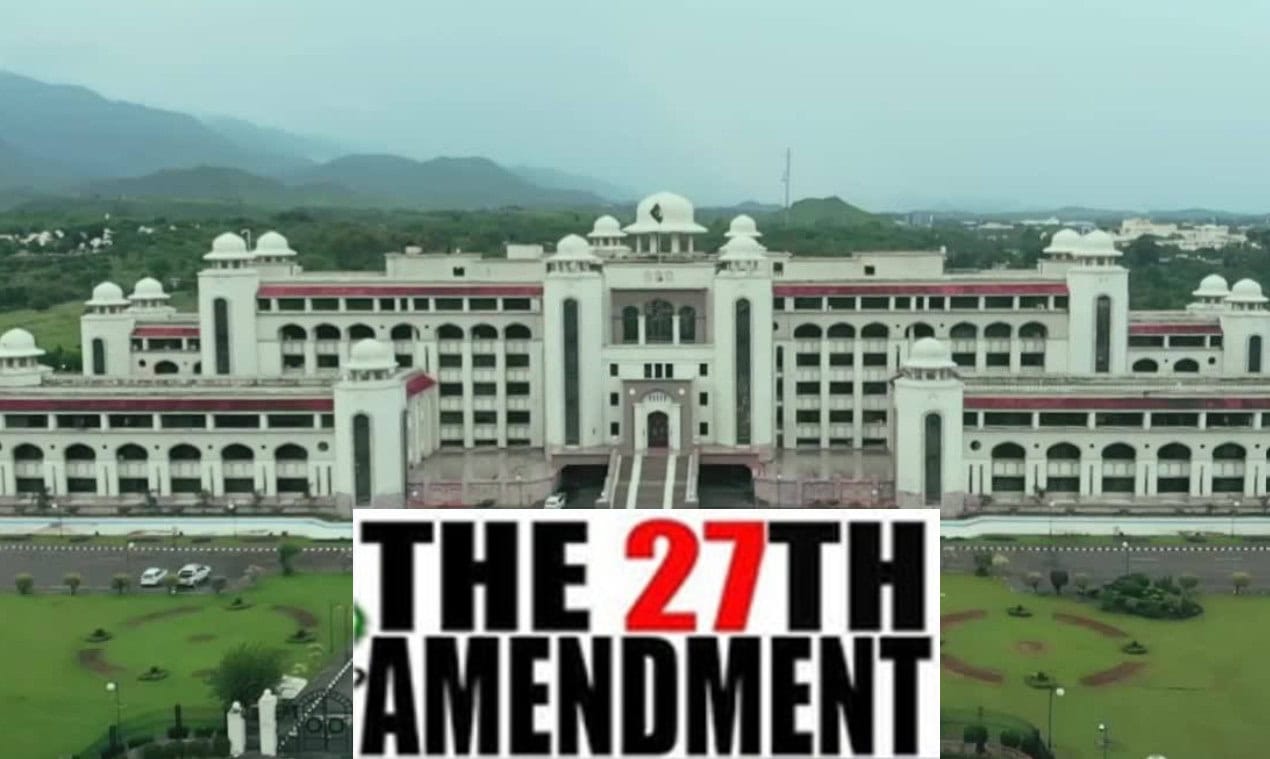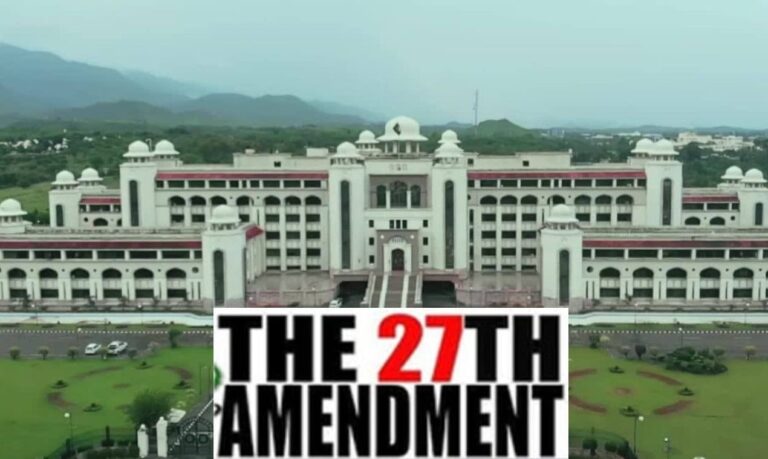
ISLAMABAD – Pakistan ruling alliance drafted 27th Constitutional Amendment, which seeks to grant the Prime Minister immunity from criminal proceedings.
The proposal includes significant changes to Pakistan’s judicial and federal system, marking one of the most far-reaching amendments in recent history.
Under proposed changes,t he retirement age for Chief Justice and other judges of the Federal Constitutional Court would be set at 68, while the Supreme Court’s powers to take suo motu notices could be curtailed. The first Chief Justice of the Federal Constitutional Court will be appointed by the President on the recommendation of the Prime Minister, raising concerns over potential political influence.
The bill further outlines strict eligibility criteria for Constitutional Court judges, allowing only Supreme Court judges, High Court judges with seven years of experience, advocates with 20 years of practice, or Supreme Court lawyers to qualify. Moreover, the Federal Constitutional Court would have the power to demand records of any pending case from any court across the country.
PM Shehbaz Sharif presided over cabinet meeting via video link from Baku, a move clarified by Law Minister Azam Nazeer Tarar as fully compliant with established rules and precedents. The federal cabinet has already been briefed on the amendment, which is set to be presented in the Senate today. Following its introduction, the bill is expected to go to a joint parliamentary committee for detailed scrutiny of its clauses.
Beyond PM immunity provision, the 27th Amendment proposes to eliminate provincial shares in NFC awards, amend Article 243, establish the Federal Constitutional Court, restore executive magistrates, regulate judicial transfers, and return certain powers over education and population planning to the federal government.
In the lead-up to the bill’s presentation, Prime Minister Shehbaz Sharif consulted all allied parties—including PPP, MQM, PML-Q, BNP, and Istehkam-e-Pakistan Party—to secure support, with Law Minister Tarar noting that there is a broad consensus under the Charter of Democracy on establishing a Federal Constitutional Court.
If passed, this amendment would mark a historic shift in Pakistan’s constitutional and political landscape, raising intense debates over judicial independence, federalism, and the legal immunity of the nation’s top executive.







